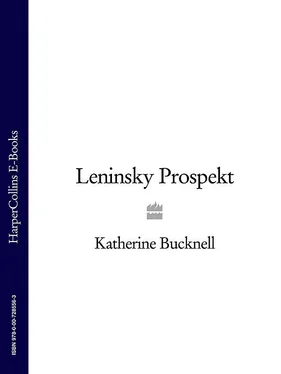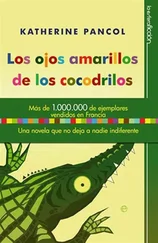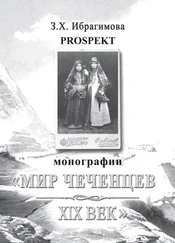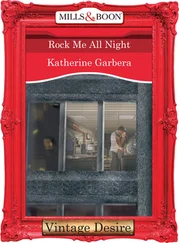‘I know.’ Nina nodded sympathetically.
Alice glanced at her sideways, brown-grey eyebrows raised in question.
‘My parents were both American. They brought me here as a tiny child.’
‘To – the embassy – or something?’
‘Well, no.’ Nina gathered her strength for the explanation. ‘My father wasn’t in the embassy. Actually, he gave up his American citizenship. So anything to do with the embassy – wouldn’t have been –’ she felt constrained, picking her words, ‘– possible.’
‘I don’t get it.’
‘People don’t,’ Nina said, ‘Americans don’t.’ Again, she glanced around. There was nobody especially near them who wasn’t already talking, fully engaged. Black, massed trees flashed past the windows. ‘My father was pretty radical for America.’ She lowered her voice. ‘A communist, is what I mean. We came here because this is where he wanted to live, what he believed in. He wasn’t comfortable in America. He was – involved – in – the labour movement. I mean he wrote articles, gave speeches, explaining to workers where their interests really lay, encouraging them to stick up for themselves, band together, whatever. It was all before I was born. Or you for that matter. The world is a different place now. And America is different.’
She waved a hand as if she could rub it out, the past. Then she went on positively, bouncing the words out like a list of points, like an argument for her father’s beliefs, ‘The Soviet Union was his dream; he came here as royalty – not an approved Soviet word, but, still, in the beginning that’s what he was. He was an engineer, which they needed here. He helped build the Metro – the Moscow subway system. You’ll ride on it, maybe. And he talked my mother into – joining him. We lived just off Gorky Street, in Maly Gnezdnikovsky Lane.
There was a silence. Alice unwrapped her arms from her belongings, leaned back a little, and said, ‘Good grief. You sound so American. I mean – you must have been there? The government must have let you in?’
Nina laughed, ‘What? America? Of course they let me in – and my mother. Getting out of here was the hard part. But we were allowed to go –’ Her voice let her down. She swallowed the word, tried again, ‘– home, a few years after my father died. So I went to college in America and then worked in New York for a while. All my friends are over there. Who knows why the Soviets have let me come back again.’
‘Really?’ At last Nina got a look at Alice’s eyes – brown, amazed, unguarded.
‘I’m just kidding.’ She tapped Alice’s forearm with two fingertips, ever so lightly, smiling. ‘I mean, I know why. It’s because of my husband. He is at the embassy. It figures, doesn’t it, that I would marry someone obsessed with Russia, the Russian language, the Soviet Union? So they let me come back in with him. American diplomats are privileged privileged privileged. Anyway it’s only for a few years this time.’ Nina’s voice was joking, offhand, but suddenly she found she couldn’t hold Alice’s simple, curious gaze, and she had to look away.
From across the aisle, a tall, bony girl dropped her bag on the floor beside them. It made a loud, slapping thud.
‘God, I’m sick of that thing.’ She lifted her shoulders in her tightly fitting, light blue and white plaid wool suit jacket, circled them, stretched her arms delicately, beautifully, touched the smooth French twist of her hair, as if adjusting a pin, then looked around under her thatch of waved blonde bangs to check who was watching her. She smiled at Nina. Nina smiled back.
‘Hi, Patrice,’ said Alice, wagging her head familiarly. And then to Nina, ‘Patrice and I room together, unless my husband comes.’
‘You’re married? You seem –’
‘Young?’ asked Alice.
Nina shrugged, conceding.
‘I’m twenty-one. Plus, I have a baby boy at home.’
‘Wow,’ Nina said, her voice lifting in surprise. ‘A baby?’
‘Nearly killed me to leave him,’ Alice whispered. ‘Mr B. can’t stand it – babies and ballerinas.’ Now it was Alice who looked around to see who was listening. ‘But I’m not a nun, you know. I’m as strong as ever, stronger. Everyone’s different, that’s all. A ballet career doesn’t last, no matter what you give up for it. So, who knows?’ She shrugged. ‘Anyway, I’m not the only one; look at Allegra Kent. She dances with even more guts now than before, and Mr B. knows nothing scares her, not him, not her body. She gives off heat like a bonfire.’ Alice blushed ever so slightly.
Nina was silenced, ruminating on the toughness that could dance professionally, talk so boldly, and yet needed a baby. Was a baby something you could leave thousands of miles away? she wondered. Alice didn’t match any picture Nina had of a ballerina. Nor did she match anything Nina had come across at Wellesley, where the girls had been generally brainy and genteel, voluptuous, lazy, strong, and nice-smelling. Amateurs – willing, well-trained, eager to please. Both of these young American dancers, with their crisp, maidenly manners, their spindly, self-conscious physical aplomb, their seemingly reckless commitment to their vocation, made her sting with uncertainty. A sense of something she had forgotten – or misunderstood. They affected her almost like some kind of personal rebuke.
Nina had spent hours watching ballet during the last six years. In New York, even when she was at Wellesley, she got hold of tickets, dragged her mother, dragged John, went alone. She used to explain to them that ballet was, for her, the most immediate, the only way to think about life, to understand all that had happened to her, to make sense of who she had been and what she was becoming – Russian, American. But she knew that the hours in darkened auditoriums had also been an anaesthetic, a form of hypnosis. The ballet carried her back to something purely physical, impersonal: joy she knew she had felt in girlhood – music, movement, the excitement of wordless grace. She didn’t think about the dancers onstage as real people; she lost herself in the full, concrete experience – what they did, what they made. Sometimes she watched in staring blankness, thoughtless, content.
When she and John became engaged to get married, she went less and less – not much at all after the wedding, until Paris and Moscow. Now, talking to Alice and Patrice, she began to think for the first time in years of what she had known about dancers when she had been a student at the Bolshoi training school. All at once, unexpectedly aching with it, she remembered edgy, single-minded devotion to teachers, ferocious, permanent silence, determination cloaked in meekness and hardened by constant work. Of course, they had been much younger, she and her classmates at the Bolshoi, and they had not had – any will of their own. They hadn’t needed it. Everything was decided for them. Nina had been taught that ballerinas needed no will. She had even come to believe it could only be a danger to them. But Alice clearly possessed plenty, and probably Patrice, too.
She bestirred herself. ‘If you two are rooming together, you might want to bear in mind that it’s wise to –’
Both girls leaned towards her with such alertness that Nina abruptly stopped talking, bridled uncomfortably. She deliberately didn’t look around her; she dropped her eyes to Alice’s green vanity case and her own gloved hands still gripping the strap on it. This wasn’t the place, she was thinking, to be giving out advice about conducting private conversations. But where was the place? She didn’t want to act as though it was some big drama.
So she went on in a low voice, eyes down, ‘I guess you’ve already been advised to just keep it kind of bland when you’re talking in your hotel room. Don’t mention specific names of anyone you meet. I mean names of – Russians. If you’re even allowed to meet any.’
Читать дальше












